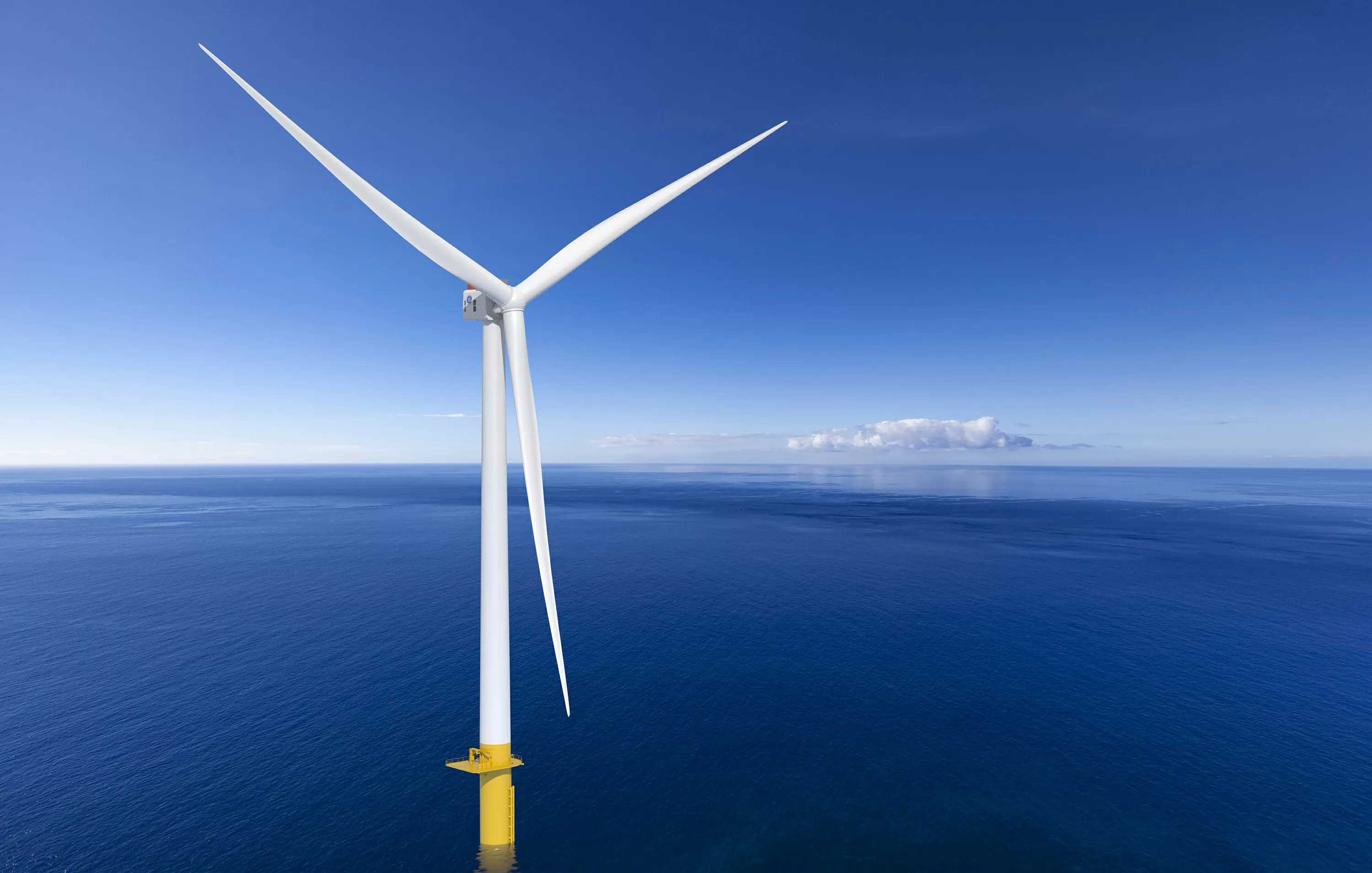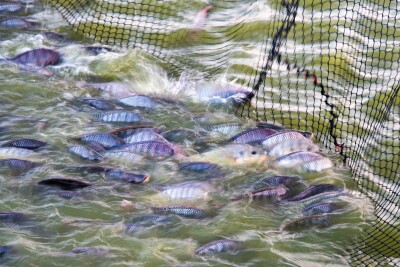The Biden administration aims to accelerate development of offshore wind energy, with a new goal to double planned renewable energy production at sea by 2030, even as the Department of Interior pauses any new leasing for oil and gas.
“The Department will immediately begin a review of processes and procedures to date as it re-invests in a rigorous renewable energy program,” according to a statement issued Wednesday as part of President Biden’s latest round of executive orders.
The Jan. 27 announcements on energy policy came two days after developers of the Vineyard Wind project off southern New England announced they are approaching the Bureau of Ocean Energy Management about resuming the permitting process for the 800-megawatt turbine array.
The developers, a joint venture between Avangrid Renewables and Copenhagen Infrastructure Partners, had asked BOEM to temporarily withdraw their construction and operations plan so it could be updated for using the next generation of larger, more powerful 14-megawatt GE Haliade-X turbines.
Under outgoing Trump administration Interior Secretary David Bernhardt, the agency refused – and citing a written opinion by the top Interior lawyer, warned that Vineyard Wind would need to start its application process from the beginning.
But in a Jan. 20 interview with Reuters, Avangrid Inc CEO Dennis Arriola, said the developers had been maintaining contact with BOEM officials since early December and would move to resubmit the construction and operations plan “very, very soon.”
Vineyard Wind made its announcement Monday.
“We have completed our final review and determined that no changes to the COP are necessary as a consequence of selecting the GE Haliade-X Turbine for the project.” said Vineyard Wind CEO Lars T. Pedersen. “Since there are no changes required to the COP, we expect that BOEM can finalize their review based on the extensive analysis and studies of the project over the last three years.
“We look forward to completing the permitting phase of the project and to finalizing the engineering, contracting and financing of the first utility scale offshore windfarm in the US.”
The developers say they are still expecting to reach a financial close in the second half of 2021 and to begin delivering energy under agreement with Massachusetts in 2023.
After the 11th-hour setback to Vineyard Wind in the waning weeks of the Trump administration, offshore wind advocates appear to be getting their wish for a strong reversal under Biden.
“President Biden’s actions today confirm the critical role that offshore wind energy will play in creating a clean U.S. energy grid and achieving White House commitments to combat climate change. His call to double offshore wind production in U.S. federal waters sends a clear signal of support to our industry, which will generate billions in new investments,” said Liz Burdock, president and CEO of the Business Network for Offshore Wind.
“The offshore wind has been on the precipice of significant growth thanks to states’ bold leadership and President Biden’s executive order further pushes the industry to new heights with a new sense of urgency,” said Burdock.
Mindful of the Biden administration’s clean-energy priorities, advocates for the commercial fishing industry have been looking to raise issues like food security and environmental justice when it comes to planning new offshore energy developments.
Their other looming issue is the so-called 30x30, or “Thirty-by-Thirty” initiative, calling in part for an end to extractive commercial uses of 30 percent of the world’s ocean. The Biden executive actions include an endorsement of that.
“The Executive Action will direct the Interior Department to outline steps to achieve the President’s commitment to conserve at least 30 percent each of our lands and waters by the year 2030, as recommended by scientists, in order to safeguard our health, food supplies, biodiversity, and the prosperity of every community,” according to the department. “Interior will undertake the process with broad engagement, including agricultural and forest landowners, fishermen, outdoor enthusiasts, sovereign Tribal nations, States, Territories, local officials, and others to identify strategies that reflect the priorities of all communities.”
The department statement did make a notation that the U.S. already has significant marine protected areas: “Studies show that roughly 23 percent of America’s ocean is currently strongly protected, with the vast majority of ocean protections found in the western Pacific Ocean.”
The 30x30 language is included in the Ocean-Based Climate Solutions Act (H.R.8632) proposed in Congress, drawing strong pushback from both fishermen and marine scientists who warn against broad-brush efforts to declare marine sanctuaries.
“Conserving 30 percent of our lands and waters by 2030 is a big deal and we must get it right if it is to be effective. If this initiative is guided by no more than simply what feels good or sounds catchy, we will not get it right,” said Chris Brown, a Rhode Island commercial fisherman and president of the Seafood Harvesters of America in a statement Wednesday. “Much like the Magnuson-Stevens Act, so too must this initiative be rooted in science if it is to be a global gold standard. ‘30x30’ must be science-based, transparent, and stakeholder-driven, while having a watchful eye for fairness, equity, and societal betterment. Our oceans are changing rapidly and we must confront that head on. However, we must allow for science to guide us, not politics.”
“We very much look forward to working with the Administration on developing a science-based, stakeholder-driven process for this initiative,” Brown said.







